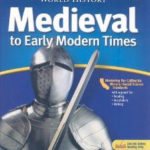By Dr. Rachel Ehrenfeld and Alyssa A. Lappen *
New York Sun | Apr. 19, 2006
Tariq Ramadan, who is barred from the U.S., is invited to speak at a conference on May 4-5, 2006, sponsored by the American Embassy in Rome, on “Immigration and Integration: Islam in Europe and Islam in the U.S.” The conference is organized by the Centro Studi Americani in Rome, which according to the Web site of its affiliate, John Cabot University, is “one of the major American institutions in Europe.” The American Ambassador, Ronald P. Spogli, is scheduled to open the conference.
Ramadan, a Swiss citizen and grandson of the founder of the Muslim Brotherhood in Egypt, Hasan al-Banna, had his visa revoked by the Department of Homeland Security on July 28,2004.The visa was revoked under the Immigration and Nationality Act, amid press speculation that the revocation stemmed from the section barring entry to persons with a “position of prominence within any country to endorse or espouse terrorist activity,” or who have “potentially serious adverse foreign policy consequences for the United States.”
While no specifics were detailed for this revocation, apparently his activities, lectures and writings in support of the Islamist agenda were the cause for this decision. According to a Spanish judge, Balatasar Garzon, Ramadan had “routine contacts” with Ahmed Brahim, an Algerian believed to be the financial chief of Al Qaeda and the financier of the 1998 U.S. embassy bombings in Kenya and Tanzania.
In 1995, during a series of terrorist attacks in Paris perpetrated by the Algerian Armed Islamist Movement, or AIM, the French interior minister, Jean Louis Debre, forbade Ramadan to enter France because of his connections to that terrorist group.
Moreover, according to the French daily newspaper Le Monde, Ramadan is also believed to have organized a 1991 meeting between Al Qaeda’s second-in-charge, Ayman al Zawahiri, and Omar Abdel Rahman, who was convicted in the 1993 bombing of the World Trade Center, which killed six people and injured more than 1,000.
Interviewed by the Italian magazine Panorama, on September 23, 2004, about “The art of ‘explaining’ the killing of Jews,” Ramadan’s answer to the question of “whether it is right to kill children and Israeli civilians because they are considered soldiers,” was that it is “contextually explicable.”
Indeed, Ramadan has given enough public speeches in mosques all over Europe, inciting his Muslim listeners against the West, that the founder of Doctors Without Borders, Bernard Kouchner, describes him as a “most dangerous man.”
The Muslim Brotherhood and Ramadan usually refrain from publicly advocating violence. However, as stated on the Muslim Brotherhood charter and its Web site, it seeks to install an Islamic totalitarian empire, a worldwide caliphate, through stages designed to Islamize targeted nations by whatever means available. This should not be a message promoted by the U.S. embassy in Rome.
If Ramadan’s invitation was not deliberate, it is a case of gross negligence on the embassy’s part. When the Department of Homeland Security ruled that he was denied entry to the U.S., presumably for endorsing and espousing terrorist activity, it was a signal that he posed a danger to U.S. interests.
Nothing that Tariq Ramadan has done since his visa was revoked in 2004 has given any reason to doubt the judgment of the Department of Homeland Security. Inviting Ramadan to a U.S.-sponsored event sends the message that his views are worth hearing out and are a valid part of the debate, even if we disagree with them.
The cultural affairs officer of the embassy, Mark Smith, gave the following response to our inquiry: “Mr. Ramadan was invited by the Centro…. The embassy is not providing any funding or other support for Mr. Ramadan’s participation in the conference.” This is an inadequate and worrisome response. The fact that the Centro Studi Americani and not the embassy invited Ramadan is irrelevant. By supporting and sponsoring the conference and using the Great Seal of the United States on the conference invitation, the embassy is conferring the prestige and approval of America upon a hearing of Ramadan’s despicable views – which the Department of Homeland Security deemed sufficiently dangerous to bar him from the country.
If America is to win the war on terrorism, we must not provide legitimacy to Islamist extremists deemed too dangerous to enter the U.S. If the American Embassy does not withdraw its sponsorship of this conference, it is likely the harbinger of a tilt in U.S. policy toward dialogue with those who wish to destroy us, or at least an indication that the State Department has a very different view of what poses a threat to this country.
* Note: As a matter of editorial policy, the New York Sun never ran double bylines or gave credit to more than one author, even when credit was due; consequently, this piece originally ran without proper credit to co-author Alyssa A. Lappen.
All Articles, Poems & Commentaries Copyright © 1971-2021 Alyssa A. Lappen
All Rights Reserved.
Printing is allowed for personal use only | Commercial usage (For Profit) is a copyright violation and written permission must be granted first.






